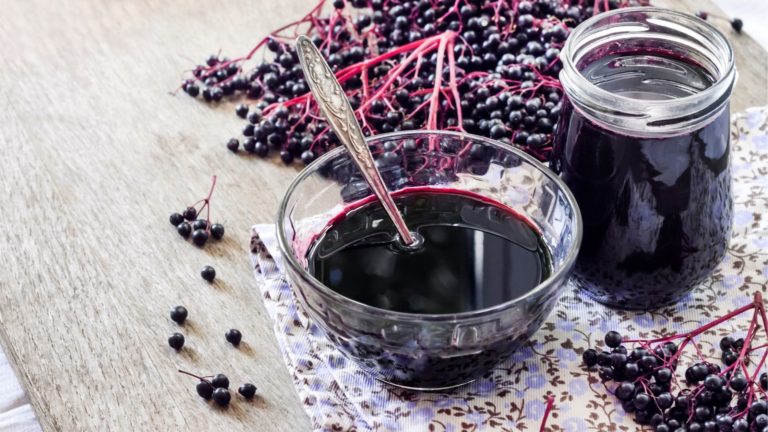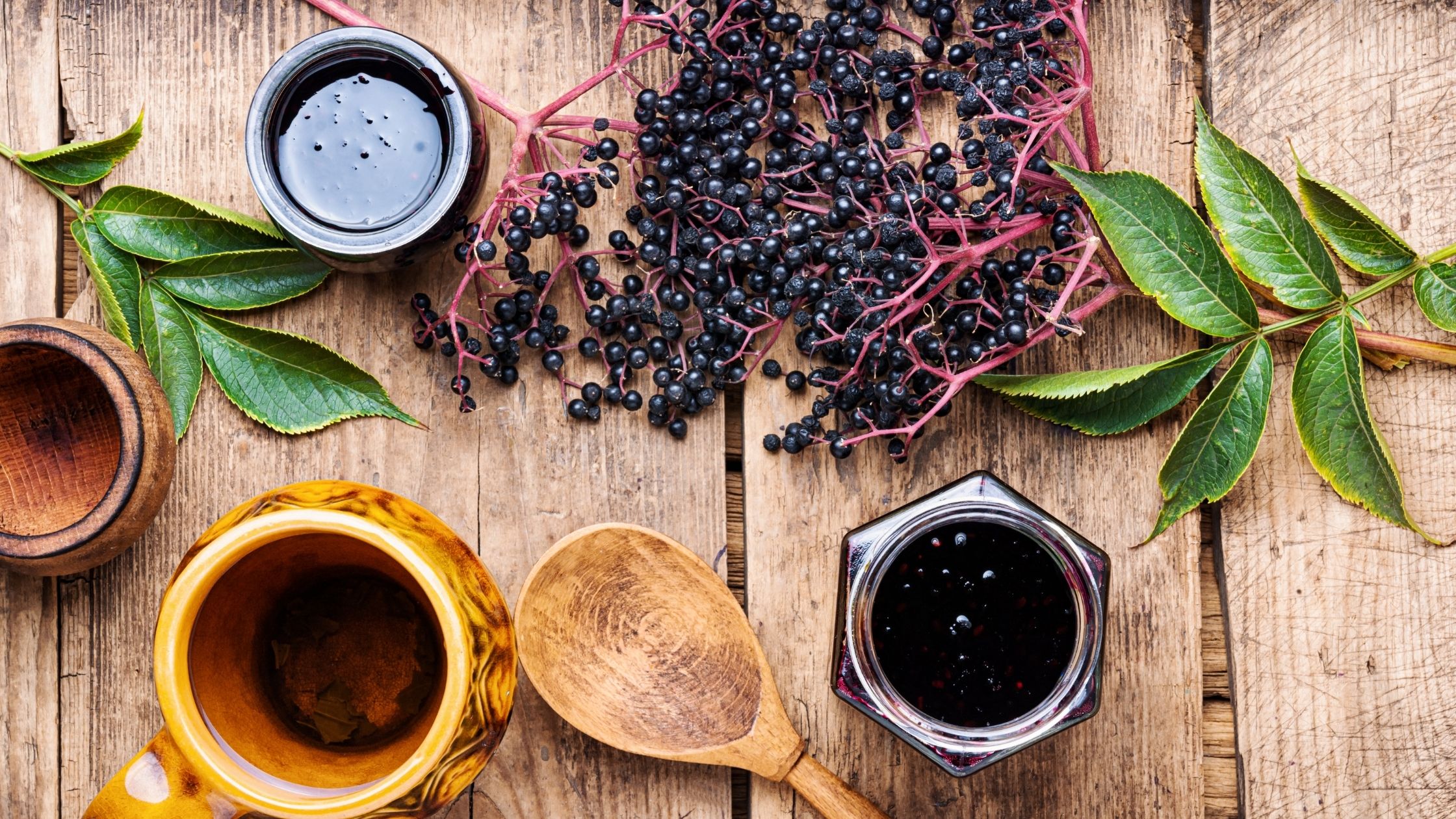What are Elderberries?
The vitamin-C-packed elderberries come from the deciduous Elder tree that can be found across the United Kingdom. Elderberry is also known as elder, black elder, European elder, European elderberry, and European black elderberry. It gets it name not from the term ‘elder’ meaning ‘old’, but from the word ‘æld’, meaning fire. This is because the hollow stems of the branches were used as bellows to blow air into a fire [1].

The unripe berries, the fruit seeds, and all green parts of the plant are poisonous, containing cyanogenic glycosides unless cooked properly [2]. When cooked, elderberries and their flowers can be used for several recipes like elderberry syrup, jam, jelly, elder wine, brandy, snaps, elderflower cordial, elderberry pie, and more. In Germany, a special soup called Fliederbeersuppe is made from elderberries!
Historically, Elder trees were planted near the home in order to ‘prevent the devil’ from entering the home. All part of the elder tree have also been used as dyes as well.
What are the benefits of elderberries while pregnant?
Elderberry syrup is massively popular right now as a supplement to boost the immune system and fight colds or the flu. Yet, can you take elderberry while pregnant? Does it have any benefits for those who are pregnant?
can you take elderberry while pregnant?

Elderberry, in various forms, is widely marketed as an immune-boosting remedy for colds and flu. Despite its recent surge in popularity as a holistic supplement, elderberry has a long history in folk medicine, dating back centuries for treating upper respiratory infections, colds, and even acne.
However, the question remains: Is it safe to take elderberry syrup during pregnancy to bolster the immune system or combat colds and flu? While elderberry is omnipresent, there’s a dearth of research validating its efficacy in fighting infections or viruses. Elderberries are rich in vitamin C and antioxidants, known to support the immune system.
Current recommendations advise against advising pregnant individuals to use echinacea or elderberry for upper respiratory tract infections due to insufficient evidence of safety.
Nevertheless, there’s also no concrete evidence suggesting elderberry is harmful during pregnancy.
If considering elderberry supplementation during pregnancy, it’s prudent to consult with your healthcare provider. Engage in a conversation with them about the safety and potential benefits. Encouragingly, ongoing research, such as studies at The Cleveland Clinic, aims to shed light on the safety and efficacy of elderberry use, not only for pregnant individuals but also for children and infants, in combatting colds and flu.
Sources
1. “Elder (Sambucus nigra) – British trees -“. Woodland Trust. Retrieved 3 November 2017.
2. “European elder”. National Center for Complementary and Integrative Health, US National Library of Medicine. 1 August 2020. Retrieved 4 September 2021.
3. Holst L, Havnen GC, Nordeng H. Echinacea and elderberry-should they be used against upper respiratory tract infections during pregnancy? Front Pharmacol. 2014 Mar 4;5:31. doi: 10.3389/fphar.2014.00031. PMID: 24624087; PMCID: PMC3941201.





